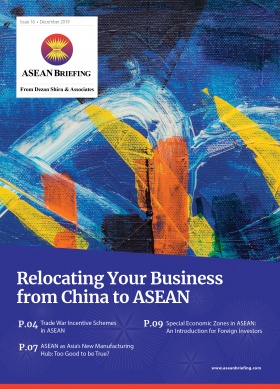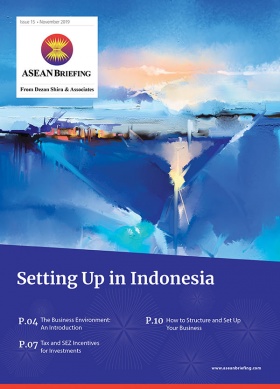How Businesses Can Benefit from ASEAN’s Professional Services Sector
- The COVID-19 pandemic will increase demand for professional services firms (PSFs) in ASEAN, who can tailor solutions to the regions’ commercial systems and consumer markets.
- Businesses in the region have increasingly utilized the help of professional service firms with deep local knowledge especially in areas related to technology and international tax advisory.
- PSFs that have invested in their data analytics in addition to digital solution capabilities will have the best means to explore new business models.
As investors gain more confidence in ASEAN, there will be a demand for professional services firms (PSF) who can tailor solutions to the regions’ commercial systems and consumer markets, particularly in the areas of business consulting, accounting, tax, legal, and marketing.
The impact of the pandemic will vary from one consultancy firm to another, depending on their size and the sector they engage in. Face-to-face meetings will now be a challenge and in-person business development presentations have been placed on hold or cancelled.
Increasing use of technology
Businesses, in particular small and medium-sized enterprises (SMEs), in the region have increasingly utilized the help of professional service firms with deep local knowledge, especially in areas related to technology, risk management, and international tax advisory. With the onset of the coronavirus, IT solutions are gaining popularity as businesses are forced to incorporate IT solutions into their operations.
PSFs that have invested in their data analytics in addition to digital solution capabilities will have the best means to explore how to turn this data into business intelligence and ultimately feed new business models. Further, the improving quality of human resources in ASEAN means businesses can expand to new sectors, such as fraud analytics, banking insurance, equity research and investment, and web design and development, among others.The use of technology, for instance, can enable firms to move from the ‘pay by the hour’ service to subscription-based services that require limited human contact. Other examples include automated tax services or legal bots – these technology-driven business models will enable PSFs to meet the demands of the ever-evolving ASEAN marketplace.
A large pool of talent
ASEAN has over 600 million inhabitants and talent is not uniform throughout the region, despite some 60 percent of the population belonging to the working age (15-59) cohort. However, this means that the available skillsets and labor can meet the demand of businesses from all ends of the value chain.
For instance, Singapore consistently ranks top in Asia for human capital development, according to the World Economic Forum. A majority of the population work in high-expertise and high-skilled occupations in a diversified economy. Vietnam is also noted for substantial public spending on its basic education system through investments in quality teachers and facilities, and Indonesia has dedicated 20 percent of the government’s budget for education.
Although underinvestment in human capital is a major challenge in ASEAN, the bloc is trying to implement initiatives to address these issues ranging from ending all forms of malnutrition to providing greater access to reskilling, upskilling, and digital literacy programs.
Factor-driven economies in ASEAN are best positioned to provide low-cost manpower for the execution of basic manufacturing. Alternatively, factor-based jurisdictions can also effectively serve as low-cost production hubs for consumer goods – targeting ASEAN’s emerging middle class. Following years of strong FDI inflows, consumer spending is flourishing in Indonesia, for example.
ASEAN nations becoming increasingly efficient
Efficiency driven economies — those who are at the second stage of development in which efficiency in producing products becomes the main competitive advantage — such as Thailand, Vietnam, Indonesia, and the Philippines make up the bulk of countries in ASEAN, meaning they can be utilized for increasingly advanced manufacturing operations, such as assembling components into more complex goods.
These countries are characterized by improving levels of education and regulatory infrastructure.
In Singapore and Malaysia, reputed to be the innovation-based economies in ASEAN, investors should be confident that the rule of law on labor contracts and disputes will be firmly observed. These countries have the technology and tools to set up high-value manufacturing operations and provide professional services.
Competitively priced labor
Minimum wages in ASEAN remain significantly lower than in most developed countries, despite rising salaries in recent years. Businesses should take note that minimum wages vary regionally and are subject to national as well as regional regulatory changes.
Minimum wage rates across ASEAN countries are rising gradually to match the region’s increased cost of living and boost domestic demand. To combat inflation and prevent any outbreaks of labor unrest, ASEAN countries have increasingly been pushing for higher minimum wage levels and enacting new labor laws to protect workers’ rights.
About Us
ASEAN Briefing is produced by Dezan Shira & Associates. The firm assists foreign investors throughout Asia and maintains offices throughout ASEAN, including in Singapore, Hanoi, Ho Chi Minh City and Jakarta. Please contact us at asia@dezshira.com or visit our website at www.dezshira.com
- Previous Article Thailand Issues Special Tourist Visas to Help Revive Economy
- Next Article Indonesia Issues Latest COVID-19 Immigration Measures







